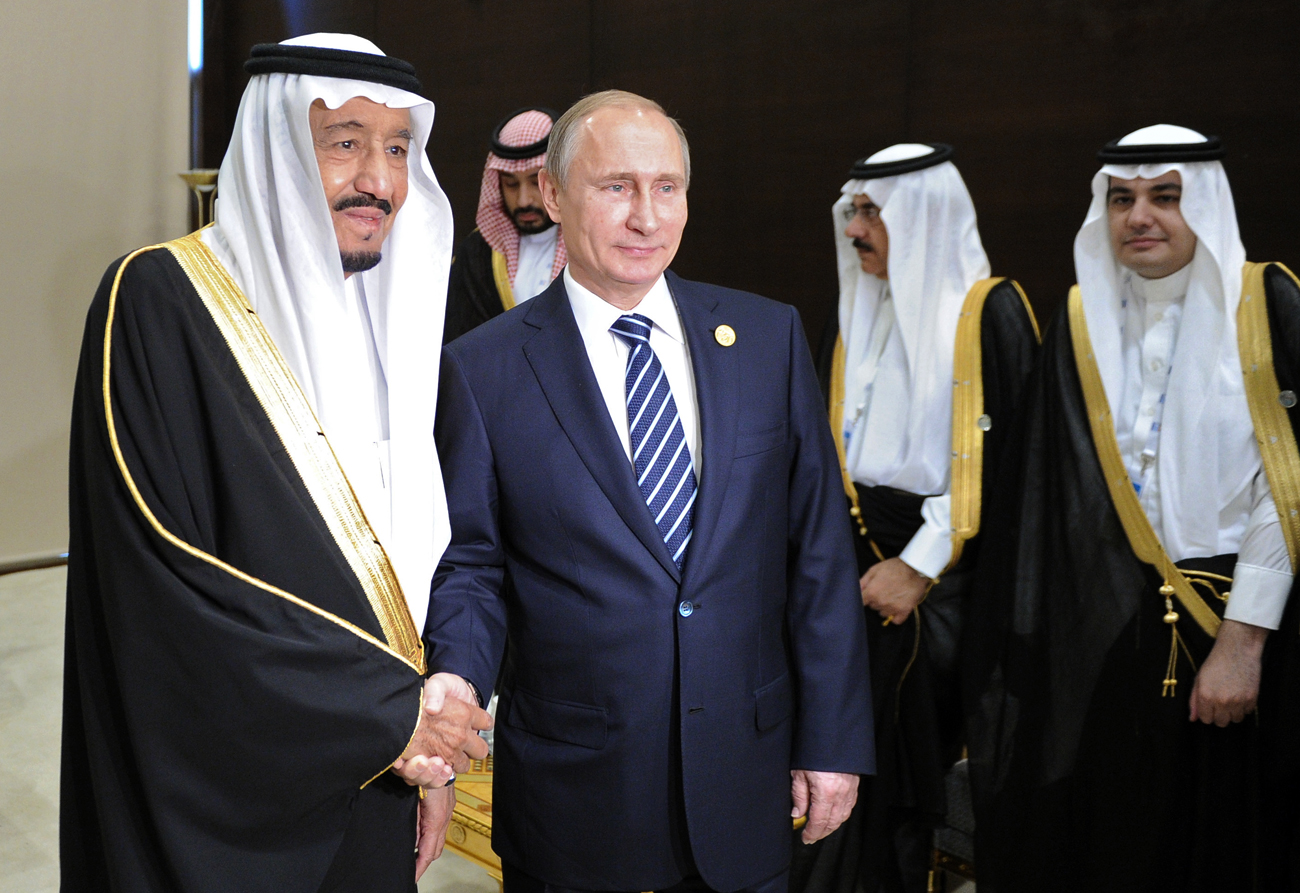
Russia and Saudi Arabia have agreed on measures with the aim of maintaining stability on the crude market and providing a sustainable level of long-term investment.
Michael Klimentyev/RIA NovostiRussia and Saudi Arabia signed a memorandum on joint actions to support the stability of the oil market and guarantee a sustainable level of investments. The signatures were made on Sept. 5 by the countries' energy ministers Alexander Novak and Khalid al-Falih.
Details of the agreement are still unknown, but immediately after it was announced prices grew by 5 percent.
"This agreement can actually be called historic, since for the first time such a document is signed by an OPEC country and one that is not part of the cartel," said Vladimir Chernov, a leading analyst at Analitica Online.
In his words, "Saudi Arabia and Russia are the largest oil exporters in the world and their statements on a production freeze are enough for prices on black gold to increase."
Earlier, in an interview with Bloomberg during the Eastern Economic Forum in Vladivostok, Russian President Vladimir Putin said that oil producers could agree to a production freeze without Iran's participation, even if the country refuses to reduce its oil production volumes.
"While earlier Russia would promote its interests within OPEC through Iran and Venezuela, which in April this year, along with Kuwait, initiated the discussion on the production freeze, now Moscow is closely interdependent with Riyadh," said Stanislav Werner, vice president of Moscow-based consulting firm IFC Financial Center.
He pointed out that together Russia and Saudi Arabia cover more than 20 percent of the demand in the oil market and coordinating activity will significantly influence the balance of forces.
According to Vladimir Chernov, for now the document is only a memorandum of understanding. However, the energy ministers will create a joint working group that will follow the oil market indicators and present recommendations on what to do to stabilize the sector.
Alexei Kalachev, an analyst at financial services company Finam Holding in Moscow, remarks that in the agreement the most important points are those on cooperation "in the field of introducing new technologies and information and experience exchange," as well as on creating "a databank of potential technologies in the energy sphere.”
“Here we're dealing with the exchange of real competencies that can be used to the advantage of both countries," explained Kalachev.
However, it will be extremely difficult to influence oil prices without the participation of other countries.
"Saudi Arabia was the country that broke up the negotiating process on the production freeze between the OPEC countries in Doha, but today agreeing only with Riyadh does not change anything fundamentally," said Ivan Kapitonov, professor at the Higher School of Corporate Management at the Russian Presidential Academy of National Economy and Public Administration.
In his words, the U.S. shale industry has shown a remarkable ability to revitalize itself: In August 2016 the number of drills grew thanks to the stabilization of oil prices above $40 a barrel. Therefore if the OPEC countries reduce production, America will take their place and then everyone will have to agree with the U.S., warned Kapitonov.
The International Energy Forum will take place in September 2016 in Algiers, when the OPEC countries plan to hold an unofficial meeting, supposedly to renew discussions on the oil production freeze.
All rights reserved by Rossiyskaya Gazeta.
Subscribe
to our newsletter!
Get the week's best stories straight to your inbox